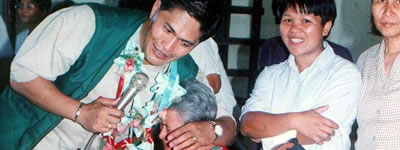|
|
|
 
|
| |

Development is lasting and sustainable if it is
fully guided by the parameters and strategies:
CULTURAL
- Civil society is further reinforced and institutionalized
through its own self-empowering activates and self-accreditation
mechanisms, a supportive and healthy climate for participatory
governance; distribution or associative economic activity as well
as appropriate support from all spheres of society.
- The contribution of cultural and social capital
to the creation of surplus wealth by the economics sector are
recognized; the insufficient funding of their sustenance and development
is corrected; and there is balance in the allocation of financial
capital for the formation of other forms of capital; physical,
human ecological, cultural; spiritual and social capital.
- Education for sustainable development is eared
towards the realization of the full potential of the human as
an individual and as integral member of a family, community and
society as a whole. Besides developing economic, ecological, political
and cultural literacy and competence. Education also promote human
well being, develops emotional and mental intelligence, and draws
out the moral and spiritual potentials of the human being. Moreover,
education motivates the human being to place one's developed capacities
in the service of the Supreme Being, nature, society and sustainable
development.
- The development of holistic and nationalistic
approaches to sustainable development draws upon inherent Filipino
values, traditions, practices, indigenous knowledge and areas
of excellence.
- Filipino multiethnic and culture diversity are
respected and promoted.
|
|
|